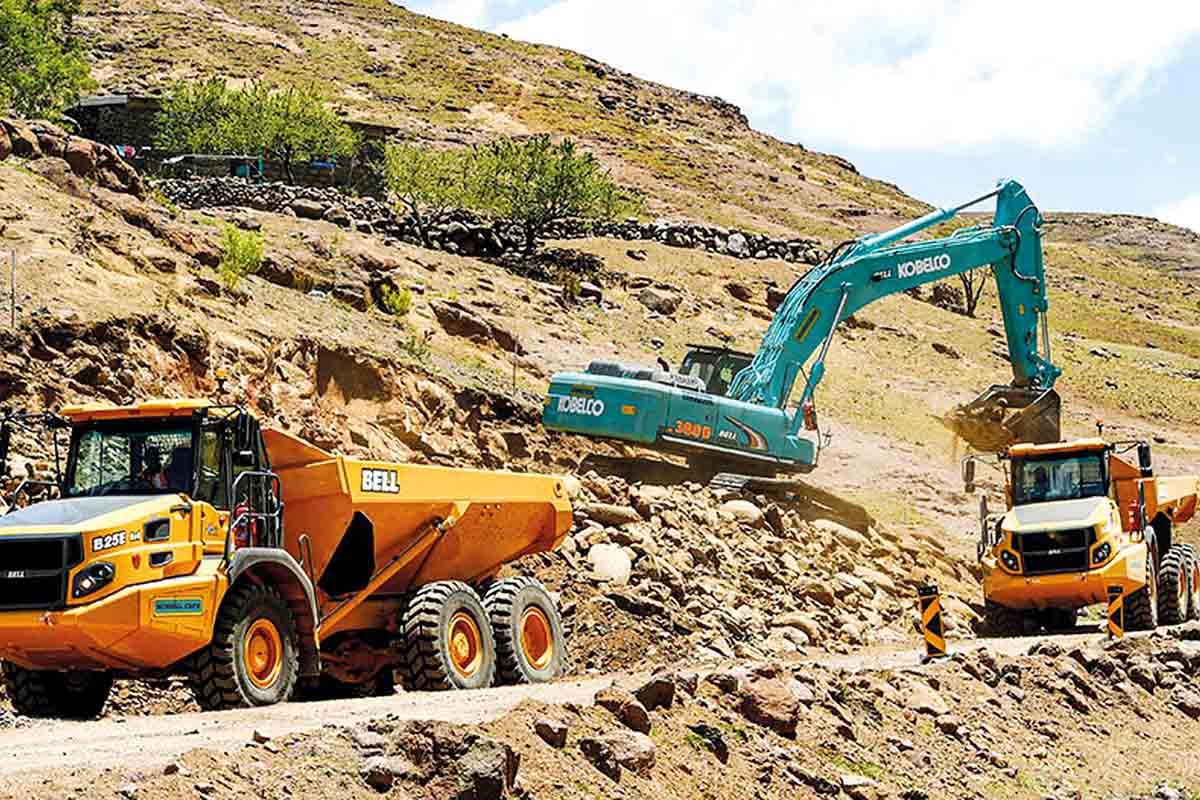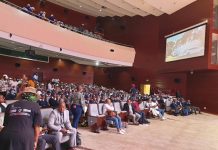Africa-Press – Lesotho. Villagers in Ha-Seshote in Thaba-Tseka are up in arms against construction companies they accuse of damaging their houses when blasting rocks during the building of a road to the Polihali Dam.
Two construction companies – HSPY and Rumdel/AC Joint-Venture – are building the road, one on the west side of Ha-Seshote Mountain and another on the east.
Other villagers from Liseleng, Ha-Salemone and Ha-Lekiba in the same area have also complained about the damage to their houses. The community accuses the two companies of damaging their houses as they carved open a mountain to make way for a road.
The road is part of the Lesotho Highlands Water Project (LHDA)’s many projects heralding the actual construction of the Polihali Dam, a joint project between Lesotho and South Africa.
What infuriated the villagers was the two companies’ contemptuous approach when carrying out their work. They never bothered to inform them when they were about to do the blasting, they said.
The blasting would frighten their livestock, they said. Chief Kose Sekonyela of the area said the contractor does not communicate with them on critical issues including when the blasting process would be done.
“Failure to do this leads to devastating consequences on the part of the people in the area,” Chief Sekonyela said.
Previously, the chief said, the contractor would delegate two people to inform the community that the blasting would be done on a particular day. “But now that no longer happens,” the chief said.
“When the blasting occurs our livestock skip kraals and run around in the village.
” He said when they are informed in time they are able to prepare for the situation. He said the sound caused by the blasting is just unbearable for them. “We have to make ourselves ready for that thunderous sound,” he said.
Chief Sekonyela said the blasting had caused cracks on their homes which the contractor has left unfixed. He said he believes the poor communication happened after the contractor cut off electricity to their homes during the operation.
So when they complained about that, they were beaten up by the police. “I think this is what has caused the tiff between us,” Chief Sekonyela said. The LHDA’s Public Relations Manager, Masilo Phakoe, said they are aware of the Liseleng Ha Salemone and Ha Lekiba communities’ grievances.
Phakoe said these grievances were raised during engagements with the LHDA including two public gatherings in May. He said some of the concerns such as the contractors’ poor communication regarding blasting notifications to communities were raised for the first time to the LHDA.
“We immediately started with investigations and the processes to address them,” Phakoe said.
Some complaints which include damage to properties as a result of blasting incidents, he said, were recorded through the Complaints Management Procedures, which is a tool that communities are encouraged to use to report complaints.
“The LHDA continues to closely monitor the situation and can confirm that repair works are in progress,” Phakoe said. He said as part of its efforts to continue to foster better working relationships with the communities, the LHDA held another gathering in June.
A consultant and the contractor presented a roadmap at the gathering, with timelines on when community complaints would be addressed. He said the community leaders including Chief Sekonyela were present at the meeting and acknowledged the contractor’s commitment to make amends.
He said they are doing their best to restore relationships, use existing community structures and project tools to communicate and comply with the LHWP Phase II implementation guidelines and protocols.
The guidelines include blasting notifications and evacuation procedures. Thabo Thelingoane, the president of the Blasters Society, said blasting like all other fields need a person who is knowledgeable and skilled.
“Extra caution has to be exercised when blasting is done,” Thelingoane said.
Failing to uphold a high level of caution could have dire consequences on the community and the environment itself. The problems could be thick and fast.
He said he could not disclose all the information regarding blasting because he is in the business and his competitors could emulate his concepts. Before blasting could start, Thelingoane said a blaster has to visit a site to assess any damage that could be caused.
He said in some places, they have to tell the affected people that they have to be resettled because the damage caused by the blasting to their homes could be massive.
Such people have to be relocated. “There are some places where we do not have an option but to tell the people that their environment is irreparable,” Thelingoane said.
Thelingoane said when blasting is done around homes, definitely there would be damage such as cracks on the homes. Then they would be able to fix those cracks.
Also, the animals, both domestic and wild would run away because of the heavy sound. But because they are in business, this has to be controlled and managed.
To accomplish their task, Thelingoane said they sometimes have to go as far as South Africa to hire sophisticated machinery. “The machines could cost as much M18 000 per hour,” he said.
He said the time of blasting tools cost depends on the area they are going to work on. He said every blaster should know what to do when they got to the field. Thelingoane said the blaster has to visit the place first, assess it and see how they could charge it. He says the blasting should not be bungled.
The Commissioner of Mines, Pheello Tjatja, said explosives in Lesotho are regulated through the Explosives Proclamation of 1958 and Explosives Regulations of 1959 as amended.
He said the Act regulates how explosives can be used in the country. The Act says the explosives are administered by the Commissioner of Mines and Police with powers bestowed on both of them.
It provides for the registration of the manufacture, storage, sale, transport, importation, possession, and use of explosives. Efforts by thepost to get comment from HSPY and Rumdel/AC Joint-Venture were not successful last night.
For More News And Analysis About Lesotho Follow Africa-Press






